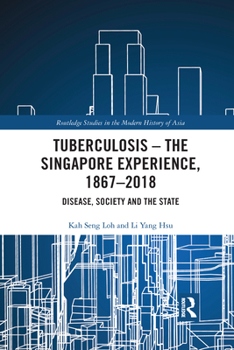Tuberculosis - The Singapore Experience, 1867-2018: Disease, Society and the State
Through a rich account of tuberculosis in Singapore from the mid-nineteenth century to the present day, this book charts the relationship between disease, society and the state, outlining the struggles of colonial and post-colonial governments to cope with widespread disease and to establish effective public health programmes and institutions. Beginning in the nineteenth century when British colonial administrators viewed tuberculosis as a racial problem linked to the poverty, housing and insanitary habits of the Chinese working class, the book goes on to examine the ambitious medical and urban improvement initiatives of the returning British colonial government after the Second World War. It then considers the continuation and growth of these schemes in the post-colonial period and explores the most recent developments which include combating the resurgence of TB and the rise of antimicrobial resistance.
Related Subjects
Political Science Politics & Social Sciences Psychology Social Science Social Sciences




